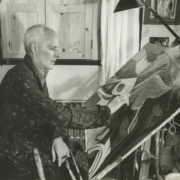Júdice
Poet, essayist, writer, novelist and academic
On the 17th of March Nuno Júdice, one of Portugal’s most famous contemporary poets died in Lisbon at the age of 74.

Nuno Judice was born in Mexilhoeira Grande (Algarve). Poet, essayist, writer, novelist, and – until 2015 – professor at the Faculty of Social and Human Sciences at the New University of Lisbon, where he graduated in Romance Philology and received his doctorate in 1989 with a thesis on Medieval Literature.

Júdice held the position of director of the literary magazine Tobacconist (Tabacaria), served as cultural adviser of the Embassy of Portugal and was director of the Camões Institute in Paris. He organized the European Poetry Week within the framework of Lisbon ’94 – European Capital of Culture.
Besides poetry, he published an overwhelming number of prose, essays, anthologies and critical editions of literary studies. His literary debut was in 1972 with ‘The Concept of Poem.’

Throughout his literary career, he was distinguished with numerous awards such as the Pablo Neruda Prize, Spain’s Queen Sofia Ibero-American Poetry Prize, the Pen Club Prize and the D. Denis Prize.
He received the Grand Prize of Poetry from the Portuguese Association of Writers for ‘Meditation on Ruins’, a finalist for the European Prize for Literature.

Júdice was a member of the editorial board of Time magazine and curator for the Jose Saramago Foundation. His works were translated into Greek, Chinese, Arab Spanish, Italian, French and English. After his retirement, he continued to work for theatre and translated authors such as Molière, Emily Dickson and Shakespeare. His most recent work is called ‘A Harvest of Silences’ (2023).
Lisbon light
The light crosses my room between
the two windows, and it’s always the same light, although
on one side – where the sun is now – is the west and on the other
– where the sun was before – is the east. In my room
west and east come together, and it’s this
light that is misleading to the eye, that does not know when
the first light is coming. Then, I look at the line
running through the space between the two windows,
that seems to have neither beginning nor end; and
then I pull that line towards me
into the room, and roll it up, as if I could
tie both ends of the day
to midday, so that time would stand
still between two windows, on the west
and on the east, until the thread again
unrolls, and everything
starts all over.
(from The Matter of Poem, 2008)
Have a great week Tenha uma ótima semana (pic Lusa)




